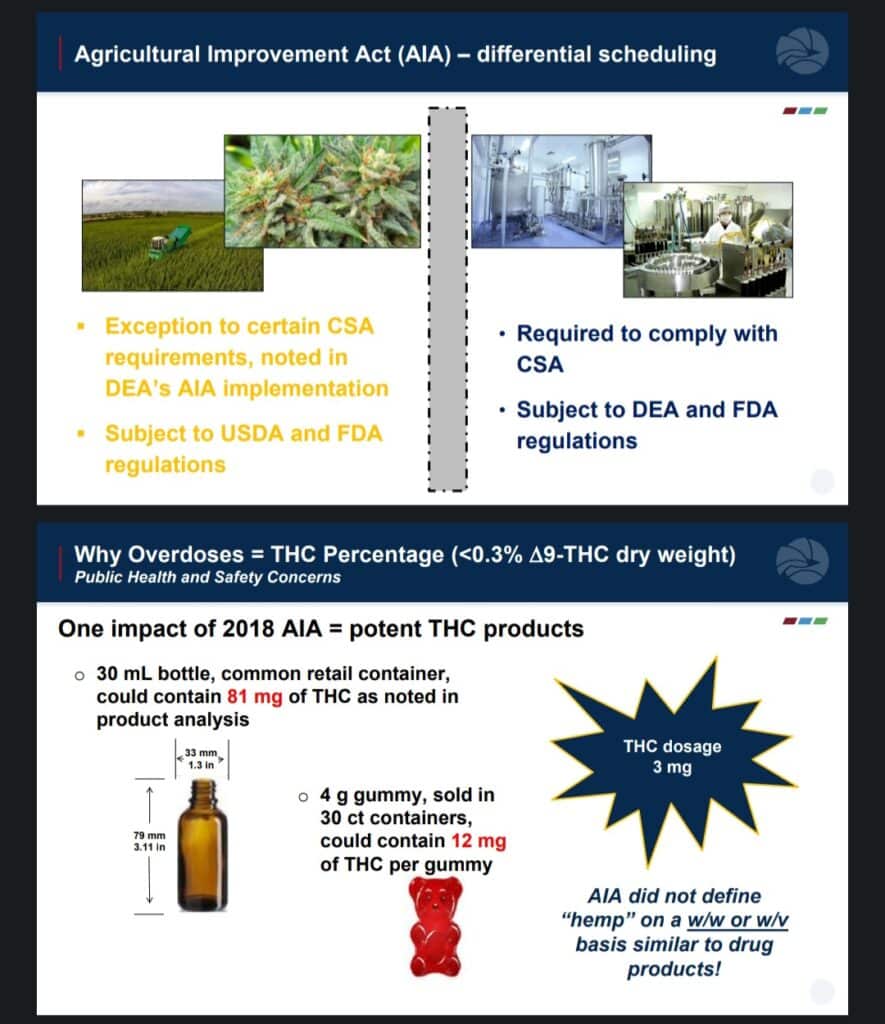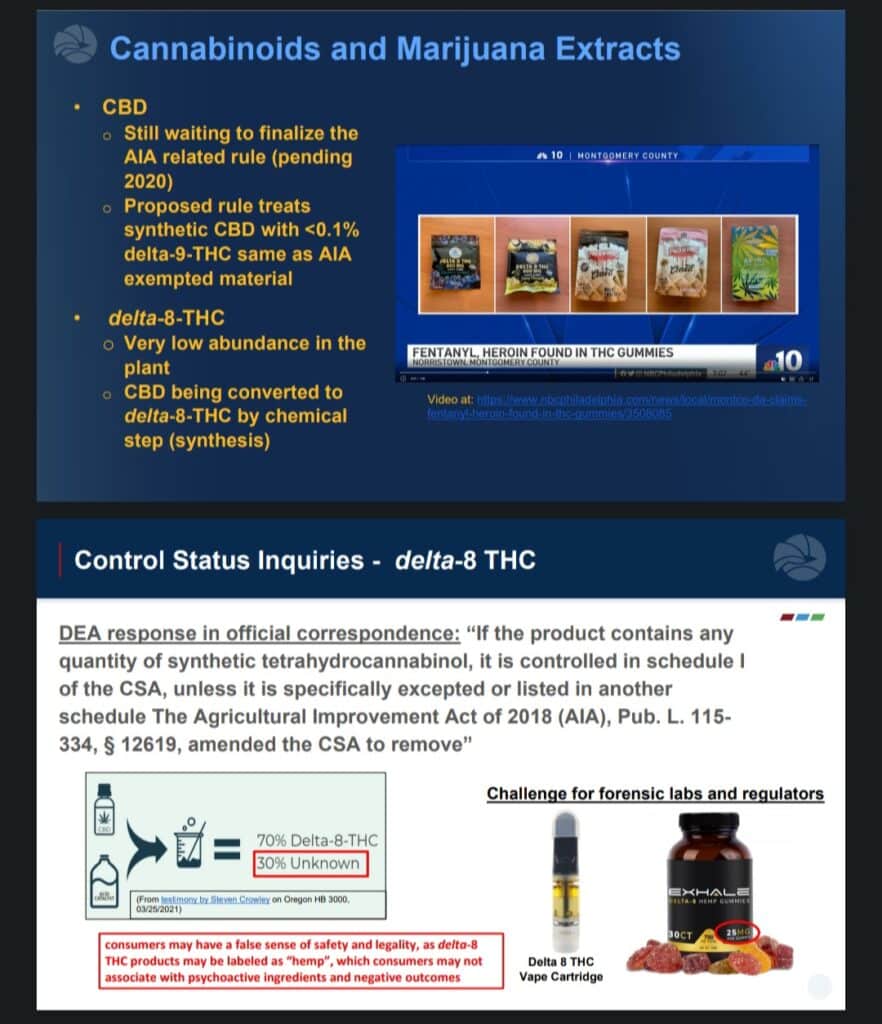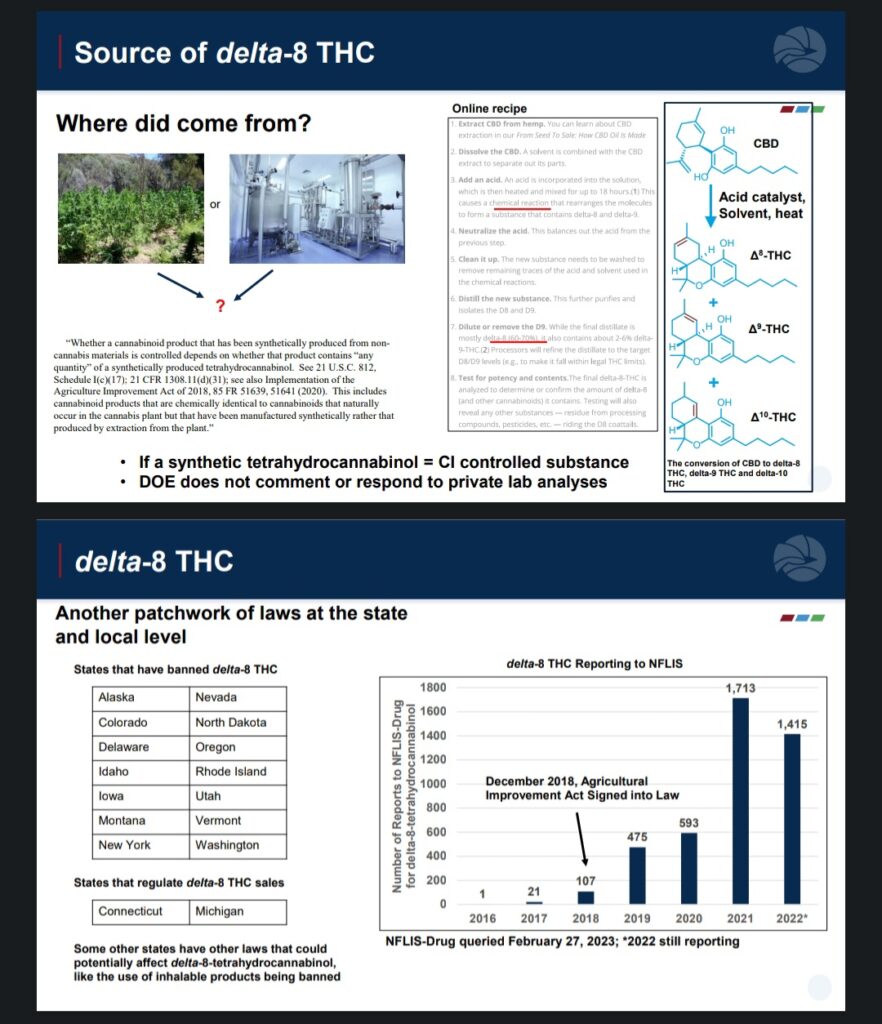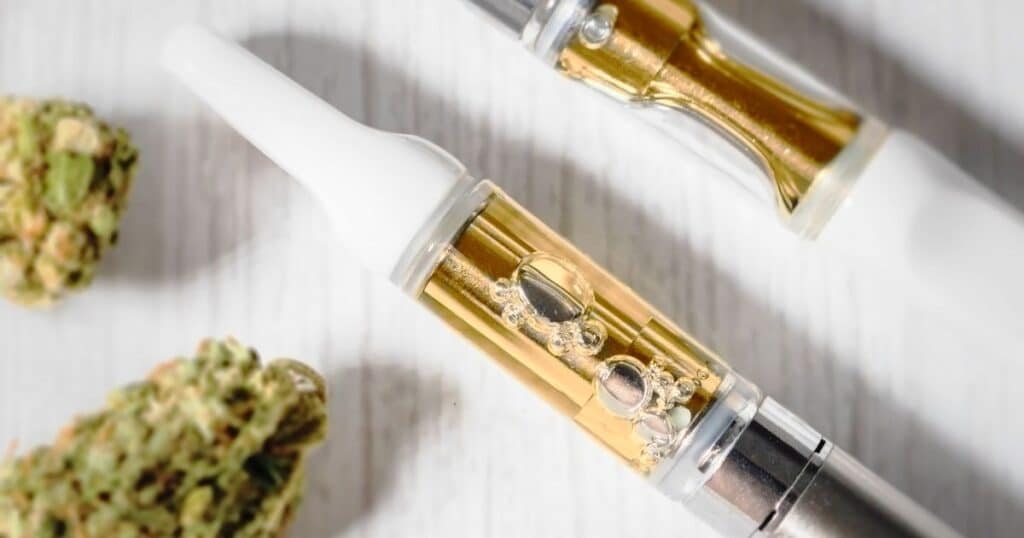
The 2018 Farm Bill was meant to provide hemp farmers and processors with much-needed protection from federal prosecution. However, this may not be the case for those dealing with synthetically-derived cannabinoids, such as Delta-8 THC.
Recent news from the Drug and Chemical Evaluation Section of the U.S. Drug Enforcement Administration (DEA) suggests that synthetically-derived cannabinoids, such as delta-8 THC, may be classified as controlled substances under federal law.
The Drug and Chemical Evaluation Section of the U.S. Drug Enforcement Administration (DEA) has proposed a rule to set THC limits in hemp products at less than 0.1% Delta-9 THC on a weight-to-weight ratio. This proposal, if adopted, would also bring hemp-derived products with more than 0.1% Delta-8 THC by dry weight content under regulation as controlled substances and require retailers to adhere to specific restrictions on their sales and distribution.
Current federal law allows for hemp-derived products to contain 0.3% Delta-9 THC, which is 3 times the DEA’s newly proposed limit.

The back-and-forth regulation of synthetically derived cannabinoids could be a significant problem for retailers who sell these products and people who use them as medication. The DEA’s decision to potentially classify synthetically-derived cannabinoids as controlled substances could lead to confusion among consumers who may have been unaware of the legal status of these products beforehand.
Moreover, this potential sudden change in legislation may cause major issues for businesses that were previously operating legally and without consequence. For example, companies may find themselves dealing with unexpected fees or penalties due to their previous association with synthetic cannabinoids.
Given the uncertainty surrounding the legal status of Delta-8 THC, 14 states have already banned its sale, and two states regulate it in some capacity. This indicates that a shift is taking place in how these synthetically-derived cannabinoids are treated under federal law, and retailers must stay current on the latest regulations to ensure compliance with state and federal laws.



Furthermore, those who use or sell hemp products should be mindful of their local state laws since they may differ from nationwide regulations. By understanding and adhering to local regulations, consumers can rest assured that they’ll remain compliant with legal requirements.
The DEA’s stance on Delta-8 THC is concerning, as this could drastically change the landscape of hemp and cannabis businesses in the United States.
Keep updated on all the latest news and updates in the Cannabis industry here at Beard Bros Pharms by signing up for our Friday Sesh Newsletter here. Always Dank and Never Spam!

















